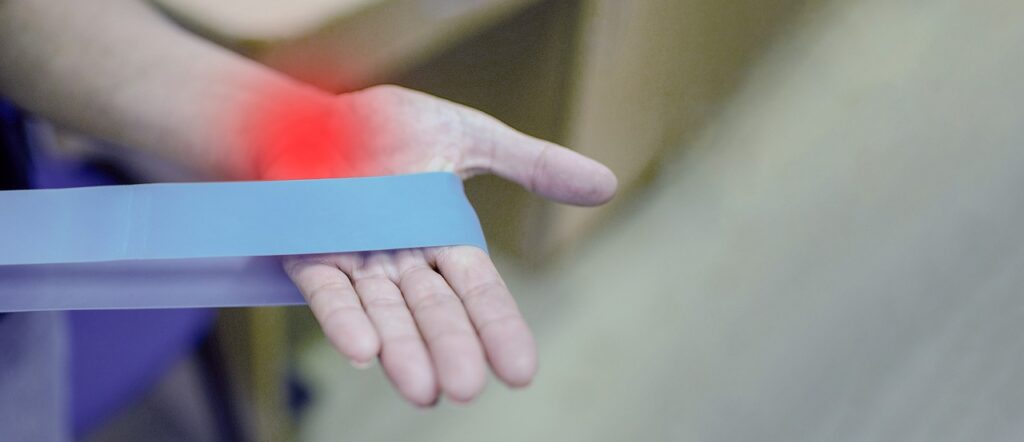What is Carpal Tunnel Syndrome?
A common condition seen by physiotherapists is carpal tunnel syndrome. Carpal tunnel syndrome is an entrapment neuropathy, which basically means nerve injury. At the wrist we have many structures which travel through the carpal tunnel, amongst these structures is the median nerve. Due to the anatomy of the wrist the median nerve is vulnerable to compression or entrapment, which results in the condition known as carpal tunnel syndrome.

Carpal tunnel syndrome may occur for many reasons, including both occupational and personal factors. Physical workload is a major contributor to the condition however is not the only cause. There are many risk factors related to the development of carpal tunnel syndrome, with the most documented diabetes mellitus and obesity. It can also occur during pregnancy.
During the early stages of this condition patients may present with wrist pain, numbness and altered sensation in the thumb, index finger, middle finger and half of the ring finger. These symptoms are often worse at night. The typical treatment for carpal tunnel syndrome is either physiotherapy (conservative management), surgical intervention or in some cases a combination of both. Currently in Australia there is a greater than 5 month waiting list for a surgical consultation in the public system for decompression surgery of the carpal tunnel.

A recent study that was published in 2020 looked at the effects of physiotherapy intervention for people who were on the waitlist for carpal tunnel surgery. The study recruited 105 participants from 4 major Australian hospitals who were on the waitlist for surgery. The study found that those people who had physiotherapy intervention were less likely to proceed with carpal tunnel surgery and were satisfied with the results from physiotherapy. This finding is supported by two other studies, which suggested a 22%- 46% reduction in progression to surgical intervention with physiotherapy management. Highlighting that physiotherapy intervention is successful in treating carpal tunnel syndrome and can be a useful tool in decreasing the chances of surgical intervention.
For more information about carpal tunnel syndrome, call the clinic on 5437 8899 to book an appointment with one of our physiotherapists.
References
Brukner and Khan’s Clinical Sports Medicine—Volume 1: Injuries, 5th Edition. (2018). Medicine and science in sports and exercise, 50(6), 1344. doi:10.1249/01.mss.0000534155.50241.67
Lewis, K. J., Coppieters, M. W., Ross, L., Hughes, I., Vicenzino, B., & Schmid, A. B. (2020). Group education, night splinting and home exercises reduce conversion to surgery for carpal tunnel syndrome: a multicentre randomised trial. J Physiother, 66(2), 97-104. doi:10.1016/j.jphys.2020.03.007
Pourmemari, M. H., Heliövaara, M., Viikari‐Juntura, E., & Shiri, R. (2018). Carpal tunnel release: Lifetime prevalence, annual incidence, and risk factors. Muscle Nerve, 58(4), 497-502. doi:10.1002/mus.26145